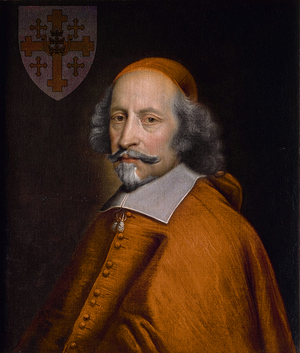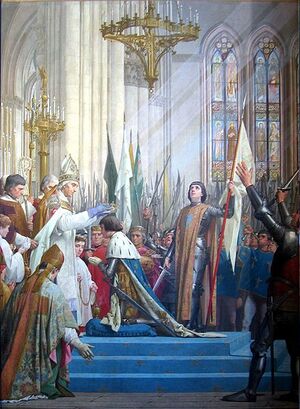Holy Catologian Church
The Holy Catologian Church was a short-lived attempted to unify the diverse branches of Catologism on Micras. The proposal included a merger between the Arcadian Catologian Church, Batavian Catologian Church, Calbain Catologian Church and the Flemish Catologian Church. The head of the church is the Magister, a position which is historically linked with the titles of Archbishop of Pentapolis and Prince Bishop of Catologum. The current Magister is Pius II.
The church originated at the Second United Council held in 1674 AN in Pentapolis, which before its establishment acted as political and religious centre of the Batavian Catologian Church.
History
Early emergence
Since the emergence of Catologism, a church organization has always been bound by national borders. This created churches such as the Batavian Catologian Church and Flemish Catologian Church, respectively for Batavia and Flanders. Because of this the church is bound to the stability of the nations where a church organization settles.
The Batavian Catologian Church has traditionally been associated with the kings of Batavia, even granting the Heavenly Mandate. After the fall of South Batavia, the Heavenly Mandate was granted to the Kaisers of Shireroth. But after the murder of Kaiser Ayreon IV came that to an end.
Second United Council
The urgency of association among the various Catological churches was noticeable, but only after intervention by Arkadius IV of Batavia was the Second United Council organized in 1674 AN.
The following decisions were taken during this council:
- The Holy Catologian Church (Catologian: Sancta Ecclesia Catologa) founded, the merger between the Arcadian Catologian Church, Batavian Catologian Church, Calbain Catologian Church and Flemish Catologian Church;
- The election of Peter Ian Bursau to Magister Pius II, Vicarius Cato, Archbishop of Pentapolis, Prince Bishop of Catologum;
- Confirmation of dogmatic principles (Catologian: Principle et dogmatum);
- Heavenly Mandate granted to Arkadius Frederik Gustavus des Vinandy with the title of Holy Catologian Emperor (Catologian: Sacrum Imperator Catologum).
The eventual declaration was only supported by a handful of Catologians, who all happened to have close ties to the House of Vinandy.
Criticism
The proposed merger of the Catologian churches was by some groups regarded as a thinly-veiled political ploy with the aim of furthering the ambitions of the Vinandys. The Calbain Church did not take part in the merger, and rejected the proposals made by the council. The proposals greatly angered the Calbain population and can be regarded as one of the reasons for the collapse of the Vinandy rule over Calbion only a year later.
Similarly, the Reformed Catologian Church refused to cooperate. After the fall of the Vinandy regime and the outbreak of the Batavian Revolution, the Magister promised to keep the Church strong, even with "some sheep acting like wolfs who had smelt blood". He received major support in the Batavian and West-Amokolian-held territories. However, due to the political and social troubles during the Batavian Revolution, no direct action could be taken against those who had left the Church.
Magister of the Church
The Magisters of the Holy Catologian Church were preceded by the Magisters of the Batavian Catologian Church. This title was often overshadowed by the title of Archbishop of Pentapolis, which was used far more often. These days the title is still linked to the title of Magister.
The Magister is responsible for the coronation of the King of Batavia. While Batavian law does not require the King to be anointed and crowned, no king can hope to receive recognition without the support of the Church and its leading clergy.


